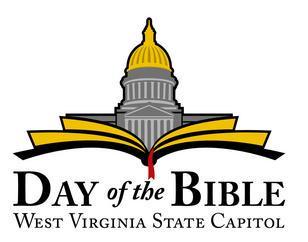Unlocking Church Spaces
How WV Churches Can Transform Education

A New Opportunity for Churches to Help Families and Schools
Churches in West Virginia have a unique opportunity to serve families, strengthen their ministry, and assist Christian schools facing capacity constraints. By repurposing their facilities during the week, churches can host microschools or collaborate with Christian schools to create satellite campuses. This model allows churches to maximize their resources while providing high-quality, faith-based education. It also expands educational choices for families and supports Christian schools in accommodating more students without the burden of constructing new facilities.
What Are Microschools?
Microschools are small, community-driven educational environments that emphasize personalized instruction. They often feature mixed-age classrooms and employ flexible, student-centered learning methods, setting them apart from traditional schools. In West Virginia, microschools remain an underutilized solution for parents seeking alternatives to public schools and for Christian schools in need of additional classroom space. They also can augment home schooling as parents work with other parents called Parent Pods or Parent Co-ops. Virginia, which has over 60,000 homeschooled students has over 500 such groups of parents working together. Some are well organized with over 100 members and some as few as 5.
Resources Available for Churches in West Virginia
- Hope Scholarship Program: This state-funded Parent School of Choice program will become universal in the 26-27 school year and empowers parents to direct almost $5000 per year for their to K-12 students in West Virginia. Families can use scholarship funds for tuition, books, and other educational expenses, including those associated with microschools. This initiative makes private and alternative education more accessible. (myschoolchoice.com)
- Educational Resource Providers: Organizations like WVCEA (West Virginia Christian Education Association) offer support for establishing microschools, including help with curriculum, training, and administrative guidance. Church leaders can use these resources to streamline the setup and management of their schools. (wvcea.org)
- Community Partnerships: Faith-based organizations such as YWAM West Virginia provide structured learning programs and assist parents in delivering quality Christian education. (ywamwestvirginia.com)
Partnering with Christian Schools to Establish Satellite Campuses
One of the most effective ways for churches to support Christian education is by partnering with established Christian schools to create satellite campuses. This approach allows students to attend classes within the church while remaining part of a larger, accredited school. It enables schools to expand their reach without significant infrastructure investments while making good use of church facilities.

West Virginia churches can replicate this model by identifying Christian schools in need of expansion. By offering their facilities as satellite locations, churches can support Christian education while deepening their community engagement.
Key advantages of this approach include:
- Optimized Facility Use: Many church buildings have classrooms and multipurpose spaces that are unused during the school week.
- Shared Mission: Both churches and Christian schools prioritize faith-based education and spiritual growth.
- Financial Stability: Programs like the Hope Scholarship help families afford tuition, benefiting both churches and partner schools.
- Community Outreach: Hosting a school within a church strengthens relationships with families and fosters broader ministry opportunities.
Integrating Christian Online Schooling Providers
Churches can also enhance their educational offerings by integrating online Christian education providers like BJU Press. These services offer complete curriculums that students can access remotely, enabling churches to establish structured learning environments without needing to employ a large teaching staff.
How an Online Learning Model Works in a Microschool Setting:
- Blended Learning Approach: Students gather at the church for structured school hours, where they follow an online curriculum under the supervision of a facilitator who could be a trained parent or church staff member.
- Certified Instruction: Online courses, such as those from BJU Press, are taught by certified Christian educators, ensuring academic excellence.
- Flexible Implementation: Churches can supplement digital instruction with in-person activities like Bible study, group discussions, and hands-on learning experiences.
- Parent Financial Direction: Parents remain actively engaged in their children’s education while benefiting from the structure and support provided by the church-based microschool.
Example: A small West Virginia church with limited resources could establish a microschool by setting up a dedicated learning space equipped with computers and internet access. Students would complete coursework through BJU Press under the supervision of a church staff member or volunteer. This setup ensures students receive a strong Christian education while remaining in a faith-focused community.
Why Church-Based Microschools Are a Valuable Solution
Several factors make microschools an attractive option for churches:
- Legislative Support: West Virginia has enacted policies recognizing microschools and learning pods, making it easier for them to operate legally. (myschoolchoice.com)
- Growing Demand: Many parents seek faith-based alternatives to public schools, especially amid concerns over curriculum content. Church-based microschools address these concerns while offering a biblically grounded education. (apnews.com)
- Financial Assistance: The Hope Scholarship makes private education more attainable, providing churches with a stable enrollment base. (myschoolchoice.com)
Considerations for Churches Starting a Microschool
Before establishing a microschool, churches should carefully consider:
- Compliance with Education Laws: Schools must adhere to state regulations to ensure legitimacy and community trust.
- Financial Planning: A sustainable funding model is essential. Churches should account for staffing, technology, and classroom resources while leveraging tuition assistance programs.
- Community Engagement: Building strong relationships with students, parents, and local organizations will contribute to long-term success.
West Virginia voters and legislators overwhelmingly support a parent's right to choose the best education for their children and the West Virginia Department of Education projects as many as 50,000 students will take part when the Hope Scholarship becomes universal in 18 months. When this happens, the big question is “where will these students go to school?” Some parents will choose to send their children to the current Christian schools, which will expand, and some parents will choose to home school their children, but the vast majority will likely consider THEIR CHURCH also becoming THEIR SCHOOL.
Conclusion
West Virginia churches have a remarkable opportunity to enhance educational access by launching microschools or partnering with existing Christian schools to create satellite campuses. By utilizing state funding programs, collaborating with established schools, and incorporating online Christian education, churches can establish high-quality learning environments while expanding their ministry. With thoughtful planning and strategic partnerships, church-based microschools can serve families, help Christian schools grow, and ensure that faith remains central in students’ education.

HGN Staff
His Good News magazine seeks to unite and empower parents, educators, legislators, and voters in West Virginia to support and advance Christian education, religious freedom, and conservative values. By fostering a strong Jesus-based foundation within our communities, we can influence legislation, protect religious freedoms, and ensure that our children receive a quality Christian education.
















